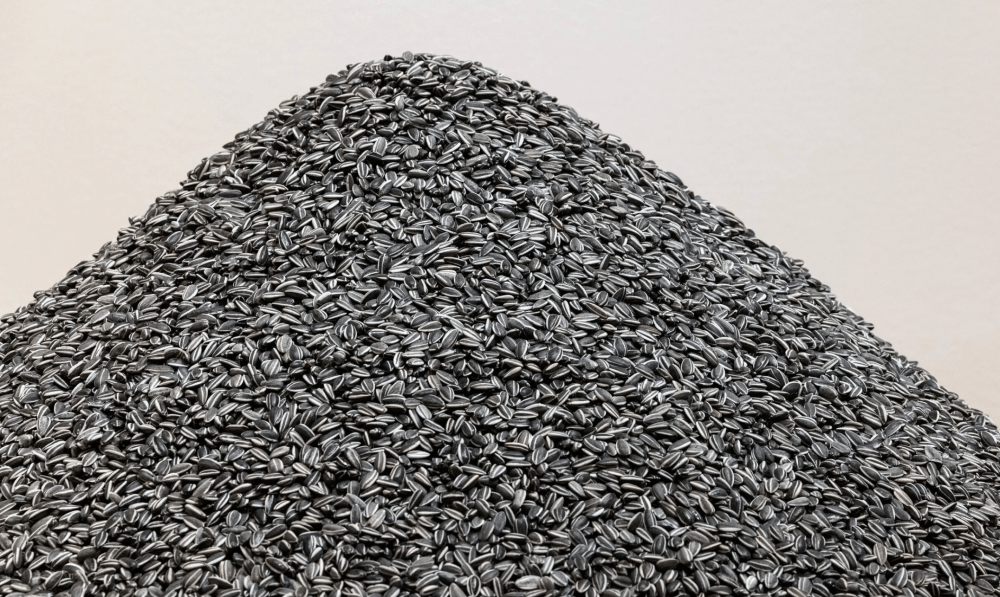
Detail from “Sunflower Seeds,” 2010
Photo: Ken Lambert /The Seattle Times
You might expect a world-famous artist like Ai Weiwei — who has poked critically at value systems and institutions for decades with his provocative, interrogating art — to be more bombastic. But in a recent conversation ahead of a major exhibition at Seattle Art Museum, a soft-spoken Ai spoke of vulnerability, humor and whether a tomato tastes like a tomato. (More on that later.)
Born in 1957, Ai is the artist we need in 2025: someone unafraid to shed light on devastating world events, to speak truth to power. He is renowned globally for his conceptual work, which uses found and fabricated objects and a wide array of other media — photography, video, painting, porcelain, sculpture, woodworking, wallpaper, installation art, even Legos — to deliver messages about history, culture and the abuse or neglect of humanity.
With “Ai, Rebel: The Art and Activism of Ai Weiwei” (March 12-Sept. 7), SAM is mounting the largest-ever U.S. exhibition of Ai’s art, gathering work from across four decades. Iconic pieces will be on view, like a 2,000-pound sampling of his porcelain sunflower seeds, along with never-before-displayed work (like a new installation of porcelain sunflower shells).
It’s a powerful, thought-provoking exhibition, grounded in works of art that are beautiful, cleverly funny and heart-wrenching, sometimes all at once. Foong Ping, SAM’s curator of Chinese art, organized the exhibition with the perspective of a historian and an eye for dramatic installation, resulting in visually arresting thematic clusters that allow rich readings of this legendary artist’s work.
The exhibition opens with photographs, including the “Study of Perspective” series, in which Ai gives the middle finger to buildings and monuments, symbols of institutional control and influence around the world. The first photo in the series was taken in 1995 in Tiananmen Square, where hundreds of unarmed protesters had been killed during protests a half-decade before.
You’ll also be greeted by a big neon sign of the f-word, a phonetic play on the name of Ai’s company, FAKE Design Studio. When pronounced in Mandarin (“fah-kuh”), it sounds like that expletive, which appears in some of the artist’s early work. This kind of playful double or triple entendre is classic Ai Weiwei.
“Humor is crucial,” Ai said at SAM on March 7. “It’s in every part of my work, which always has a double language or heightened meaning. Humor also questions what is questioned and who asks the questions.”
History is vitally important to the artist, too.